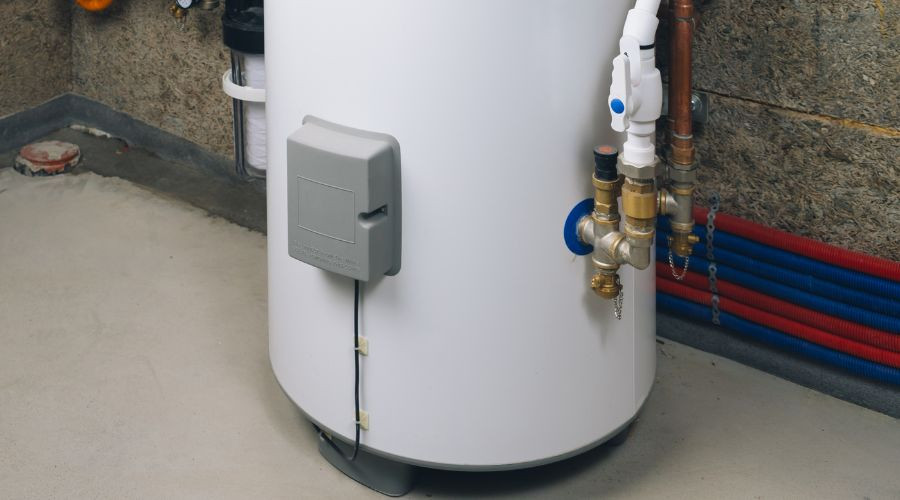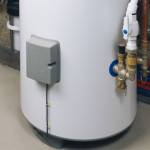Pros and Cons of Different Water Heaters
When it’s time to replace or install a new water heater, homeowners often face a key decision: electric or gas? While both types serve the same purpose — providing hot water throughout the home — they achieve this in different ways, and each comes with its own set of advantages and disadvantages. The best choice often depends on the home’s current setup, energy needs, safety priorities, and even the local climate.
Understanding how each option performs in real-life scenarios can make the decision easier. Whether it's about installation cost, long-term efficiency, or safety considerations, both systems have plenty to offer but also a few things to watch out for.
Gas Water Heater
 Gas water heaters have been a reliable choice in many homes for decades. They operate by using natural gas or propane to heat the water, making them a solid option for households that already have gas lines in place.
Gas water heaters have been a reliable choice in many homes for decades. They operate by using natural gas or propane to heat the water, making them a solid option for households that already have gas lines in place.
Pros of Gas Water Heaters:
- Lower Operating Costs: Gas is generally less expensive than electricity in many areas, so operating a gas water heater can result in cost savings over time.
- Faster Heating: These systems heat water quickly than electric models, making them ideal for larger families or homes with high hot water demand.
- Continues to Operate During Power Outages: Since they don't rely on electricity, many gas water heaters will still function during blackouts (as long as they don’t have electric ignition).
Cons of Gas Water Heaters:
- Higher Installation Requirements: Gas heaters require proper ventilation and existing gas hookups, which can increase the upfront installation costs if these are not already in place.
- Safety Risks: Gas leaks and carbon monoxide exposure are rare but serious concerns, underscoring the importance of proper installation and maintenance.
- More Maintenance: Venting systems and burner components may require more frequent checks than electric units.
In short, a gas water heater may be the best choice for households looking for faster heating and lower monthly energy bills—provided the home is equipped for safe installation and the owners are mindful of regular maintenance.
Electric Water Heater
 Electric water heaters are often the go-to for homes without existing gas lines. They rely solely on electricity to warm the water, making them simpler to install and often safer to operate.
Electric water heaters are often the go-to for homes without existing gas lines. They rely solely on electricity to warm the water, making them simpler to install and often safer to operate.
Pros of Electric Water Heaters:
- Lower Upfront Cost: Installation is typically quicker and less expensive, especially in homes already equipped for electric appliances.
- Safety Advantages: With no risk of gas leaks or carbon monoxide, electric units are the safer choice for households with safety concerns.
- Smaller Footprint: Many electric water heaters are compact and can be installed in tighter spaces.
Cons of Electric Water Heaters:
- Higher Operating Costs: Electricity typically costs more than natural gas, leading to potentially higher monthly utility bills.
- Power Outage Vulnerability: If the electricity goes out, so does the hot water—there’s no backup with electric systems.
- Slower Recovery Rate: Electric models often take longer to reheat water compared to gas systems.
For those prioritizing ease of installation and safety, an electric water heater can be a practical and budget-friendly solution, particularly in smaller households or properties with limited access to gas.
Factors to Consider Before Installation
Choosing between gas and electric isn’t just about cost. It’s also about compatibility, lifestyle, and future-proofing. Every home has unique needs, and taking time to assess a few important factors can help ensure the system installed is both efficient and convenient for the long term.
Things to think about:
- Existing Infrastructure:
- Gas Line Access? Homes without a gas line will face higher installation costs for gas water heaters.
- Electrical Panel Capacity? Older panels may need to be upgraded to handle a larger electric heater.
- Power Reliability:
- In areas with frequent power outages, a gas water heater may be a more reliable choice, as it can operate without electricity.
- Safety Concerns:
- For families concerned about gas leaks or indoor air quality, electric heaters may offer peace of mind.
- Water Usage:
- Larger households may benefit from the faster recovery rate of gas heaters, particularly during periods of high demand.
- Environmental Preferences:
- Electric water heaters can be powered by renewable sources, such as solar energy, while natural gas still emits carbon.
There’s no one-size-fits-all solution. Homeowners should consult with a trusted plumbing professional to weigh the pros and cons based on their property and preferences. Whether it’s the faster performance of gas or the safety and simplicity of electric, the right water heater will meet both present-day and future needs.
About Jim Wagner Plumbing, Inc.
Jim Wagner Plumbing, Inc. is a trusted, family-owned plumbing and HVAC company based in Lombard, IL. Backed by three generations of licensed professionals, the team is committed to delivering top-quality service at fair, upfront prices. With fast turnaround times, on-time service, and fully licensed plumbers and HVAC technicians on every job, customers can count on reliable repairs, honest solutions, and long-lasting results—every time. For reliable water heater services in Lombard, IL, call them today!







